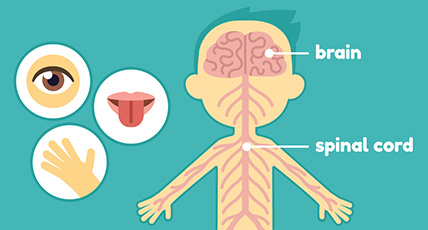Acute Flaccid Myelitis (AFM) is a rare but serious neurological condition that primarily affects the spinal cord, leading to sudden muscle weakness and paralysis, typically in one or more limbs. Here’s an overview of its symptoms, causes, prevention, and treatment:
Symptoms:
- Sudden Muscle Weakness: The hallmark symptom of AFM is sudden muscle weakness or paralysis, often starting in the arms or legs.
- Loss of Reflexes: Patients may experience a decrease or loss of reflexes in affected limbs.
- Facial Drooping: In some cases, facial weakness or drooping may occur.
- Difficulty Moving Eyes: Patients may have difficulty moving their eyes or may experience double vision.
- Difficulty Swallowing or Speaking: Some individuals with AFM may have difficulty swallowing or speaking.
- Numbness or Tingling: Patients may experience numbness or tingling in affected areas.
Causes:
The exact cause of AFM is not fully understood, but it’s believed to be primarily linked to viral infections, particularly enteroviruses like EV-D68 (Enterovirus D68) and EV-A71 (Enterovirus A71). Other viruses, such as West Nile virus and adenovirus, have also been associated with AFM. It’s hypothesized that these viruses trigger an immune response that leads to inflammation of the spinal cord, resulting in the characteristic symptoms of AFM.
Prevention:
Preventive measures for AFM primarily focus on reducing the risk of viral infections that may lead to the condition. These include:
- Good Hygiene: Practicing good hand hygiene, such as regular handwashing with soap and water, especially during cold and flu seasons.
- Avoiding Close Contact: Minimizing close contact with individuals who are sick, particularly those with respiratory illnesses.
- Staying Updated on Vaccinations: Ensuring vaccinations are up-to-date, including vaccines for poliovirus, which is a known cause of acute flaccid paralysis.
Treatment:
Treatment for AFM primarily involves supportive care to manage symptoms and complications. There is no specific cure for AFM, but treatments may include:
- Physical Therapy: Rehabilitation therapy, including physical and occupational therapy, to help maintain muscle strength and mobility.
- Respiratory Support: In severe cases where respiratory muscles are affected, mechanical ventilation may be necessary.
- Pain Management: Medications may be prescribed to alleviate pain associated with muscle weakness and inflammation.
- Monitoring and Surveillance: Close monitoring of patients for potential complications and long-term follow-up to assess recovery and manage any ongoing symptoms.































